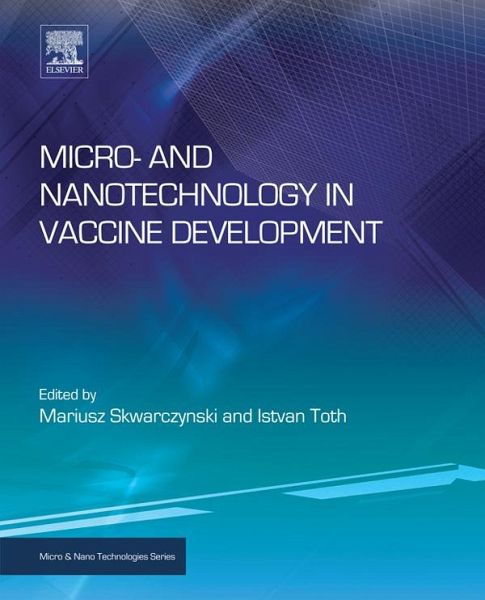
Micro- and Nanotechnology in Vaccine Development (eBook, ePUB)

PAYBACK Punkte
58 °P sammeln!
This book provides a comprehensive overview of how use of micro- and nanotechnology (MNT) has allowed major new advance in vaccine development research, and the challenges that immunologists face in making further progress. MNT allows the creation of particles that exploit the inherent ability of the human immune system to recognize small particles such as viruses and toxins. In combination with minimal protective epitope design, this permits the creation of immunogenic particles that stimulate a response against the targeted pathogen. The finely tuned response of the human immune system to sm...
This book provides a comprehensive overview of how use of micro- and nanotechnology (MNT) has allowed major new advance in vaccine development research, and the challenges that immunologists face in making further progress. MNT allows the creation of particles that exploit the inherent ability of the human immune system to recognize small particles such as viruses and toxins. In combination with minimal protective epitope design, this permits the creation of immunogenic particles that stimulate a response against the targeted pathogen. The finely tuned response of the human immune system to small particles makes it unsurprising that many of the lead adjuvants and vaccine delivery systems currently under investigation are based on nanoparticles. - Provides a comprehensive and unparalleled overview of the role of micro- and nanotechnology in vaccine development - Allows researchers to quickly familiarize themselves with the broad spectrum of vaccines and how micro- and nanotechnologies are applied to their development - Includes a combination of overview chapters setting out general principles, and focused content dealing with specific vaccines, making it useful to readers from a variety of disciplines
Dieser Download kann aus rechtlichen Gründen nur mit Rechnungsadresse in A, B, BG, CY, CZ, D, DK, EW, E, FIN, F, GR, HR, H, IRL, I, LT, L, LR, M, NL, PL, P, R, S, SLO, SK ausgeliefert werden.













